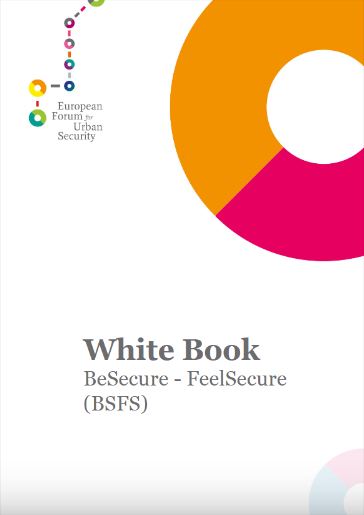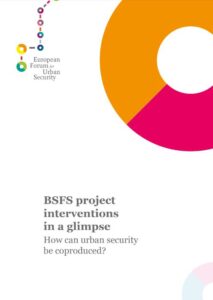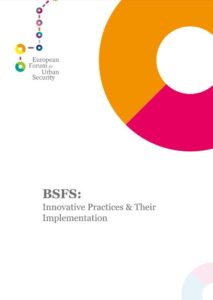
The BeSecure-FeelSecure (BSFS) project was a new type of project as it was selected in the framework of a specific “Call for Proposal” centred around the topic of ‘urban security and related innovative solutions’, under the Urban Innovative Actions (UIA).
The work carried out under the ‘Urban Agenda for the EU’ – under which Efus coordinates a thematic partnership on “Security in Public Spaces” – that has as one of its key objectives to “contribute to identifying, supporting, integrating, and improving traditional, innovative and user-friendly sources of funding for urban areas”, has contributed to this new type of funding.
Context
In this context, under the 4th Call for Proposals of the UIA, their innovative Urban Security related projects have been selected: BeSecure-FeelSecure (City of Piraeus, EL), TO-nite (City of Turin, IT), SURE (City of Tampere, FI). All three projects were centred on a specific local context.
The BeSecure-FeelSecure project promoted a holistic approach towards urban security to tackle security related issues in Piraeus (GR). The project aimed to develop tools and strategies that are to be used both in the physical and cyber space in order to reinforce urban security. As a partner, Efus was in charge of transferability, dissemination and the sharing of experience and expertise.
Objectives
The BSFS solution was elaborated and evaluated in the City of Piraeus (CoP) – one of the highest populated cities in Greece with long-lasting urban security related problems – and developed a set of ‘replication guidelines’ for the wider adoption of BSFS solution in other cities. These guidelines allowed other cities to ‘tailor’ the BSFS solutions to their own respective local context.
The proposed ‘BSFS-solution’ consists of three interrelated elements:
1) A governance innovation through the creation of a Local Council for Crime Prevention (LCCP)
2) An ICT system for Collaborative Urban Risk Assessment (CURiM) for the collection and analysis of crime-related data
3) A number of social interventions (trainings and sports activities) and spatial measures (Prevention Through Spatial Design) to improve security.
Activities
BSFS introduced the Local Council for Crime Prevention (LCCP) in Piraeus, where the urban security city stakeholders were represented (municipality, police, local chambers etc.) under the common goal to decide on activities and interventions that increase city resilience against crime.
Under the supervision of the LCCP, BSFS applied a number of spatial interventions, such as image management, target hardening following the CPTED “Crime Prevention through Environmental Design” model, accompanied by social activation strategies to enhance community cohesion and connectivity at neighbourhood level. The project also offered a digital platform enabling the assessment of combined physical cyber threats and the visualization of risks and other relevant activities through geospatial mapping to facilitate decision-making.
Documents
Key documents reflecting the main actions carried out within the project
@Efus 2023 – All rights reserved – www.efus.eu
The role of Efus
Efus contributed to BSFS by being the project’s main transferability channel. Based on its expertise and network of local and regional authorities Efus offered great dissemination potentials at the EU-level and thus plays the role of an impact multiplier. Hence, the Forum played a critical role in communicating the project’s results to urban security stakeholders across EU.
Efus led the activity on the “standardisation and best practices” of the project. This activity, included the replication potential and practices to be followed in order to achieve the BSFS’ transferability to different urban environments. As main output, a BSFS ‘Best practices and transferability implementation’’ tool was produced under the form of an ‘Implementation Manual’ and ‘Implementation Webinars’.
Partnership
Led by the Municipality of Piraeus (MoP) the project gathers apart from Efus, the SinguarlLogic SA (SLG), the Panteion University (PANT), the University of Piraeus Research Centre (UPRC), the SPACE Hellas (SPACE) and the Ministry of Citizen Protection POLICE (MCP).
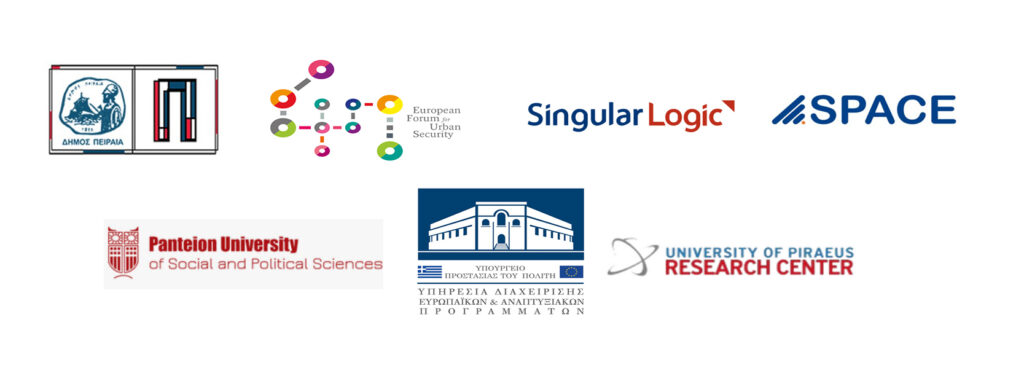

Visit the project’s website
Duration
September 2019 – March 2023 (43 months)
Contacts
Ilyana Skalli, Programme Manager – skalli@efus.eu
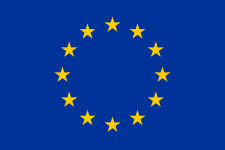
The project is 80% financed by the Urban Innovative Actions of the European Commission’s’ DG Regio (the fund that is dedicated to these UIA actions is the ERDF)

